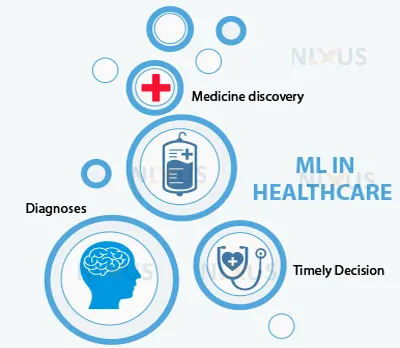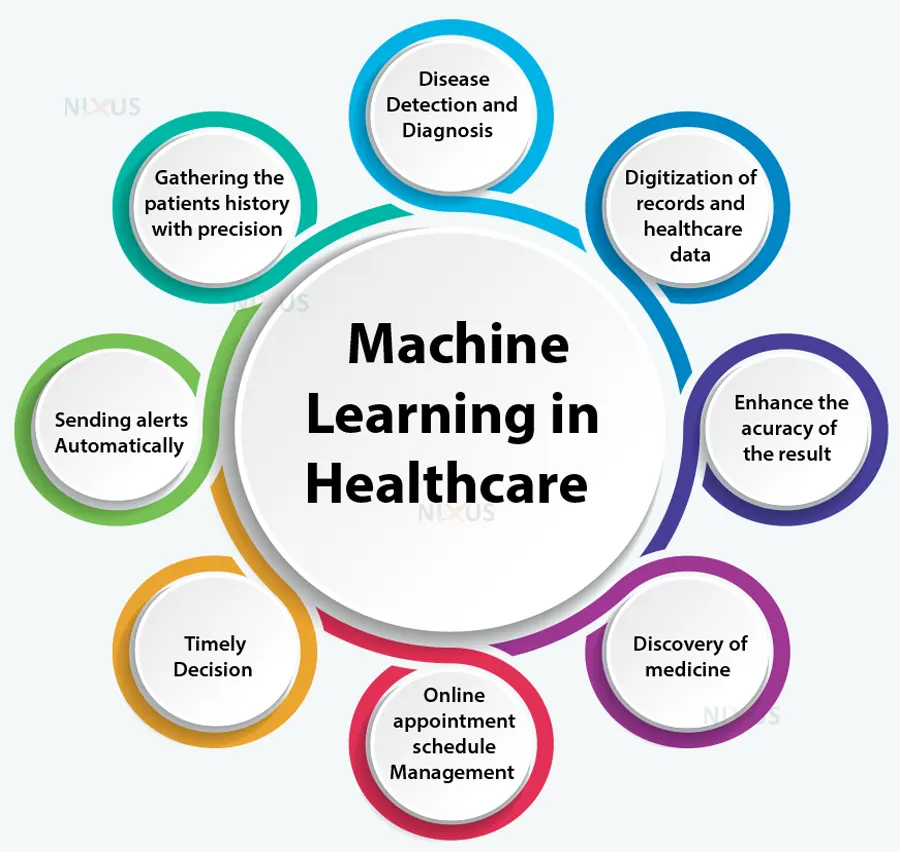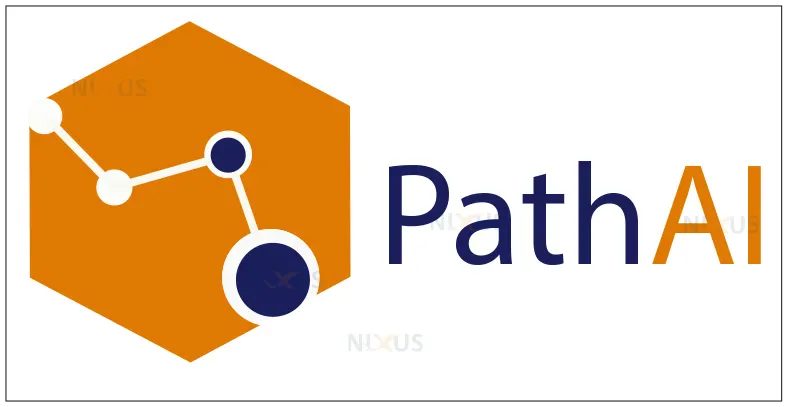Machine learning in Healthcare
Modern technology has long been strongly backed by the healthcare sector. In a similar way as done in business and e-commerce, machine learning has numerous uses in the healthcare sector. With this technology, the possibilities are almost endless. By using its advanced applications, machine learning is helping to improve the healthcare sector.
Due to its ability to lower subjectivity and unpredictability in diagnostic techniques, machine learning has the potential to significantly enhance the healthcare system.
Machine learning is crucial in identifying the patient’s condition, keeping track of his health, and advising necessary precautions. Massive amounts of medical data are extracted using machine learning, which also offers expert guidance and help.
The algorithms used by machine learning, which get more intelligent as more records are examined, can retrieve data from clinical/medical charts more quickly and precisely than manual review techniques. Plans and providers can improve the accuracy of risk scores by using machine learning to find clinical gaps and underlying risk factors. By detecting healthcare gaps, machine learning gives the medical community the knowledge they need to better manage risk and enhance patient care.
In this way, pertinent information can be learned by medical specialists without human interference. Data analysis utilizing machine learning techniques in healthcare has become more dependable and effective. Therefore, expectations for transforming the healthcare field that include quicker diagnosis and recovery have been arising.
The following are some notable applications of machine learning in healthcare:
1. Disease Detection and Diagnosis
Machine learning-enabled solutions that evaluate medical records and images can be utilized in the healthcare industry to improve diagnosis. Identification and diagnosis of illnesses that are typically thought of as difficult to diagnose is one of the main uses of ML in healthcare.
One of the most important developments in machine learning for healthcare is probably the ability to diagnose diseases and do medical imaging. For instance, a machine learning algorithm can be utilized in X-rays or MRI scans employing pattern recognition to seek for patterns that suggest a specific condition. This might facilitate faster and more precise diagnosis on the part of medical professionals.
2. Digitization of records and healthcare data
The modernization of healthcare informatics is greatly aided by ML. In order to provide patients with the best care possible, record digitization improves operations and lowers administrative expenses. Additionally, ML helps close holes in data algorithms and clinical forecasts. By gathering, evaluating, categorizing, and deleting data, a large number of health informatics specialists make a significant contribution to data integrity. The improvement of healthcare processes through the use of health informatics and machine learning greatly benefits patients.
3. Enhance the accuracy of the results
With the development of technology and advanced ML applications that greatly increase the accuracy of findings, e-medical devices have become more common. Medical equipment includes diagnostic tools like ventilators, computer tomography scanners, heart-lung machines, pacemakers, and diabetes monitoring systems. Medical personnel must rely on precise operation and analysis of this equipment since they provide crucial information about the condition of the patient.
4. Discovery of medicines
The domain dealing with the discovery of medicines has incorporated ML applications, especially in the early stages, right from the first evaluation of a drug’s ingredients to calculating its rate of success based on biological factors.
Pharmaceutical companies use ML in the development and production of new drugs. This is limited to using unsupervised machine learning to identify patterns in raw information. The objective is to develop unsupervised learning-based precision medicine that will enable medical professionals to identify the mechanisms that underlie “multifactorial” diseases.
With machine learning algorithms, pharmaceutical companies may combine several prescription formulas and figure out which versions perform best. Unsupervised learning-based machine learning approaches can be effective for finding new drugs and creating medicine combinations that are specific to the individual situation.
5. Online appointment schedule management
Scheduling of online appointments can be easily handled by machine learning by automatically analyzing physician calendars and setting an appointment time slot. This might make it easier to use less time and money in the healthcare system’s repetitive tasks.
Machine learning helps with a variety of tasks, including processing invoicing, scheduling appointments, filing appointment records, counselling patients, setting reminders, diverting emergency calls, and a lot more.
6. Timely decision
Timely judgment is one of the most important components of healthcare. Making decisions about the course of treatment in advance is something that doctors and other healthcare providers can do if they have more knowledge. With the use of machine learning, healthcare professionals may process enormous volumes of data and gain valuable insights that will aid in making quick decisions.
There are numerous diseases that must be detected in their early stages in order to develop a treatment strategy and assist patients in securing a good quality of life. Machine learning algorithms assist doctors in the early detection of diseases. Machine learning compares new and old data on a specific disease, and if the diagnoses raise a red flag, doctors can take appropriate action.
7. Sending alerts automatically
At crucial times, machine learning can provide automated warning messages and suitable targeted material that stimulates actions. In many ways, ML can customize and enhance the therapeutic process. Bot system is one of the most useful applications of machine learning in the healthcare sector that greatly reduces treatment time.
A voice-activated virtual nurse who provides information about a variety of diseases, medical problems, and drugs acts as a healthcare aide for patients.
8. Gathering the patient’s history with precision
Accurately compiling a patient’s history is one of a doctor’s most important responsibilities. Due to the patient’s lack of expertise and knowledge of the data, this is frequently challenging. Healthcare professionals can use machine learning to precisely gather a patient’s history and healthcare administration to identify the most pertinent questions to inquire about a patient depending on different characteristics.
It assists in gathering crucial data and offers a forecast of the most probable scenarios. Machine learning can help persons with limited movement better their daily life by offering scheduling assistance and intelligent reminders, predicting and preventing probable accidents by detecting common obstacles, establishing the optimal routes, and getting aid as soon as feasible.
9. Robotic Surgery
Machine learning is being implemented in surgical robotics. Manufacturers understand the need to automate using machine learning data as opposed to behaviour coded by an engineer who is unaware of all the possible scenarios. This deep machine-learning data was gathered through observing surgeries.
With the help of these data and sophisticated algorithms, ML may identify patterns in surgical techniques to enhance best practices and increase the control precision of surgical robots to submillimeter levels. For example- real-time identification of omitted or unanticipated processes is made possible by laparoscopic video analysis of procedures like sleeve gastrectomy surgery.
Role Of Machine Learning in Pandemic Situations Like COVID-19
The COVID-19 situation has accelerated the emergence of new prototypes and the enhancement of various machine learning models to yield promising outcomes. The rapid analysis of a massive amount of data sets is facilitated by machine learning. Due to this, fundamental knowledge has been discovered, and strategies for the virus’s diagnostics have been developed.
In order to predict the spread of COVID-19, serve as an early alarm system for upcoming pandemics, and detect vulnerable groups, machine learning is also assisting academics and industry professionals in the analysis of vast volumes of data.
Each of the three dangers may be predicted with the aid of machine learning- the risk of infection, risk of Severity, and risk of the outcome. ML-based predictive models simulate the spread of the infection, forecast the number of individuals infected, recovered, and those who passed away, and improve the overall viral spread model.
Machine learning has made it possible to repurpose drugs.
The time taking and costly random controlled medication trials have been drastically shortened as a result. These statistical algorithms-based ML-based approaches identify the medications that could be repurposed to treat Covid-19 infection.
Another role of machine learning includes the fact that during the coronavirus or any such pandemic situation, the misleading information about the virus gets widely spread, especially over social media. Machine learning models aid in the assessment of the veracity of false information. These models also give suggestions that can alert the people and authorities to such misleading information and prompt the implementation of appropriate safety precautions.
Healthcare Companies Using Machine Learning
1. PathAI
Machine learning is used by PathAI’s technology to aid pathologists in providing quicker and more precise diagnosis. Machine learning models created by PathAI offer drug development research and development insights, clinical trial support, and diagnosis.
2. KenSci
To forecast sickness and therapy, KenSci employs machine learning. This allows doctors to engage sooner and assist patients in avoiding potentially dangerous situations. By spotting patterns, uncovering high risk indicators, and modeling disease development, KenSci’s algorithms enable healthcare providers to forecast population health risk.
3. Ciox Health
To provide healthcare providers with quicker access to the data of patients, Ciox Health uses machine learning to power its Datavant Switchboard platform. Within the platform, businesses can create custom controls that let employees send requests for particular kinds of data. To maintain the security of patients’ e-health records, Ciox Health’s technology complies with privacy compliance regulations.
4. Insitro
Insitro uses both computational biology and machine learning to speed up and reduce the cost of developing drugs. Large biological data sets are used to create ML-based predictive models, which are then used by the company to filter through that data and identify important trends, like new disease subcategories. Insitro’s medical specialists can then modify medications to better shield people from developing diseases.
Conclusion
Healthcare that is enabled by technology is becoming a reality as smart medical equipment becomes more widespread. The future of machine learning in healthcare is highly promising because the healthcare industry fosters innovation.
The medical sector is closely monitoring the ongoing advancement of machine learning. ML principles are helping surgeons and doctors save valuable lives, detect diseases and issues even before they occur, effectively managing patients, indulging patients more actively in their treatment plans, and many more.





